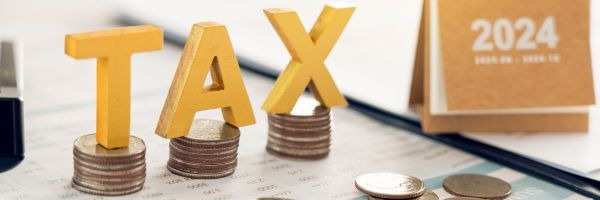The annual self-assessment tax return deadline has now passed, and for many business owners, it may have been a frantic rush to gather documents, double-check figures, and ensure everything was submitted and paid on time.
If that sounds familiar, you weren’t alone! HM Revenue and Customs reported that 3.4 million taxpayers—almost a third—had yet to submit their tax return in the final week before the deadline.
The stress of last-minute filing may have left you determined to be better prepared next time. The good news is that with proactive planning, next year’s tax return can be a far smoother process.
How to Avoid a Last-Minute Rush in 2025
Here are some practical steps you can take now to make your next self-assessment filing stress-free:
1. Review and Reflect on This Year’s Process
Start by assessing what went well and what didn’t during this year’s tax return. Did you struggle to locate receipts or invoices? Were some tax rules unclear? Identifying these challenges now allows you to address them early. Consider implementing improvements such as better record-keeping or seeking professional advice.
2. Keep Financial Records Organised
Regularly updating your financial records can significantly reduce last-minute stress. Try incorporating these habits:
- Digitising receipts and invoices – Use apps or software to scan and store receipts as they come in. Many platforms even categorise expenses automatically.
- Reconciling accounts monthly – Checking that your bank statements and financial records align each month helps prevent errors and missing transactions.
- Maintaining a tax file – Create a dedicated digital or physical folder to store key documents such as business expenses, income records, and HMRC correspondence. This makes everything easier to find when needed.
3. Use Accounting Software
Investing in reliable accounting software can streamline your tax preparation. Many modern tools integrate directly with your bank account, making it easier to track income and expenses. Popular options include Xero, Sage, and QuickBooks.
4. Stay Informed About Tax Allowances and Deductions
Tax rules change annually, so keeping up to date is crucial. Familiarising yourself with allowable expenses, reliefs, and deductions can help you maximise tax efficiency. For instance, you may be eligible to claim for home office expenses, equipment, or professional services.
5. Set Up a Tax Savings Account
Nobody enjoys paying tax, but an unexpected bill can put a strain on your finances. To avoid this, consider setting aside money regularly. Opening a dedicated savings account and depositing a percentage of your income each month can help ensure you’re financially prepared when payment is due.
6. Plan Ahead with a Tax Calendar
Creating a tax calendar that highlights key dates and deadlines can keep you on track. Setting reminders well in advance will give you more time to prepare and avoid any last-minute panic or penalties.
Make Next Year’s Tax Return Stress-Free
By taking these proactive steps—starting early, staying organised, and using technology effectively—you can turn your tax return from a stressful task into a simple, manageable process.
If you need personalised advice on tax record-keeping or training on accounting software, please don’t hesitate to get in touch—we’d be happy to help!









